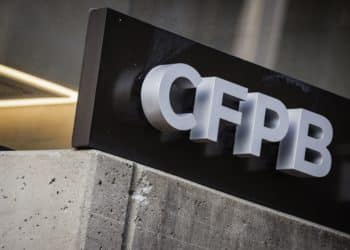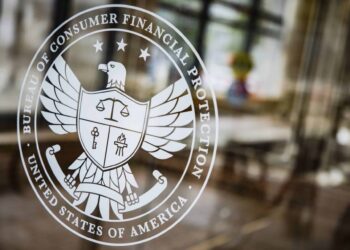Choice … or No Choice?

Why, you ask, is this important? Because each day that the press and the public are focused on Russia scandals, and the American peoples’ general irritation with their elected representatives is one less day our institutions can focus meaningfully on the country’s business and get something done. When you add to that the public drama of the Republican caucus’s inability to agree on just about anything, you have the self-imposed gridlock within the governing party we see on a daily basis. Will the Republicans be able to get the Financial Choice Act across the finish line?
The Dodd-Frank Act is a massive piece of legislation, and my focus has been largely limited to Title X, i.e., the Consumer Financial Protection Act of 2010 (CFPA), that portion of Dodd-Frank that created the Consumer Financial Protection Bureau and established its jurisdiction and authority. The Financial Choice Act is intended to deal with Dodd-Frank as a whole, but it does propose significant changes to CFPA (as discussed in my last two columns).
Because of its breadth and scope, and the havoc it wreaks on the CFPA, it seems doubtful the Financial Choice Act will make it to the Senate floor for consideration. As I’ve said before, the closer we get to the end of the year, the closer we get to the midterm elections. With a vote in favor of the Financial Choice Act being the legislative equivalent of declaring oneself opposed to consumer financial protection, Republicans, already in the hot seat over the healthcare bill, are unlikely to want to add more fuel to the fire by crippling the CFPB.
That said, if Republicans could find some unity in the near term, I expect the Senate could get on board with a more modest version of the Financial Choice Act. But, that looks unlikely right now. So, what could be done?
While not currently a feature of the Financial Choice Act, I think both Democrats and Republicans could get on board with converting the single director structure to a commission. It is a far superior model to the single director, even if a new president could fire them at will. A politically balanced commission with staggered multi-year terms would bring stability to policy making at the CFPB, and eliminate its current, rather political, approach to policy. The commission could have heated debate about what is best for consumers within the confines of what the industry is capable of doing, at a reasonable cost.

They say that revenge is a dish best served cold, and while those of us in the industry may find an anti-Cordray deliciously refreshing, it is political junk food. The wide swings of the policy pendulum (or political nausea) that would result from politically diametric directors are not good for business, and by extension, not good for the American people (who, by the way, seem to be the last thing on anyone in the government’s mind).
A commission structure isn’t perfect, but it is far better and a far more stable solution than the current approach of vesting massive authority in a single person, whether or not they can be fired at will. In the words of Winston Churchill, “Democracy is the worst form of government, except for all the others.” So, too, is the commission. I also think the CFPB’s funding apparatus could be scrapped in favor of the appropriations process. A lot of Democrats will be opposed to this, but it’s worked well for the Federal Trade Commission and has allowed Congress to maintain effective and meaningful oversight.
To address Democrats’ concerns, it would be easy enough to mandate a funding floor in any legislation (e.g., the 10% of the Federal Reserve’s operating budget) that had a limit on increases or decreases. I suspect more centrist Democrats could warm up to the idea, though more conservative Republicans may balk at any kind of funding. But I go back to my earlier point — do any Republicans really want to raise their hand in opposition to consumer financial protection, with so many Americans still suffering as a result of the recession?
There are two other items that I’m curious whether Democrats could support. One, is prohibiting the publication of the complaint database (absent some mandate to ensure the accuracy and veracity of said complaints). The complaint database has been flawed from inception, and is more a scarlet letter the CFPB inflicts on businesses than a meaningful indication of substantive complaints. It may be a pipe dream on my part, but the complete lack of due process and the constraints on industry to effectively countermand frivolous complaints (and, let’s face it, common decency) are evidence that the database is more of a shaming tool, and less of a useful data collector.
The other item I wonder about, is with respect to revoking the bureau’s authority over small-dollar lending. The current approach from the CFPB will by its own admission decimate 70% of the small dollar lending industry, leaving millions of Americans without access to credit. In many instances, the heaviest users of small-dollar loans are in left-leaning districts, and one would think representatives in those districts would think twice before allowing the CFPB to eliminate constituents’ abilities to have access to emergency credit to pay an electric bill, put gas in the car to get to work, or get some groceries before the next paycheck comes along. Again, perhaps a pipe dream on my part, but this is something we should leave to the states to regulate.
Will “Choice” see the light of day? Who knows?
Michael Benoit is a partner in the Washington, D.C., office of Hudson Cook LLP. He is a frequent speaker and writer on a variety of consumer credit topics. Michael can be reached at 202-327-9705 or mbenoit@hudco.com. Nothing in this article is legal advice and should not be taken as such. Please address all legal questions to your counsel.








